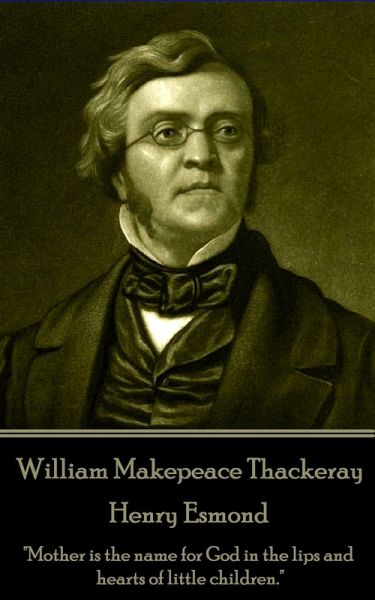The History of Henry Esmond, Esq. by William Makepeace Thackeray
My rating: 4 of 5 stars

I was motivated to read ‘The History of Henry Esmond, Esq.‘ by the back cover blurb, in which it was noted that contemporaries of Thackeray, as well as the author himself, considered this novel not only superior to Vanity Fair, but in fact the greatest English novel ever written.
How could it be, I wondered, that a book which at the time was considered peerless, could today be utterly forgotten? Esmond, after all, appears on no one’s secondary school reading list. And while not technically out of print (in the age of print-on-demand, this is no longer a meaningful concept) you will not see this book on the shelves of booksellers. What’s more, all currently available editions on Amazon have less than half the number of reviews and a lower rating than my own first novel, “The Hydra“. What grim fate, then, could have befallen the greatest novel ever written in the English language?
The answer is important because of what it might imply about the nature of cultural capital as it is passed down to us through history. We assume, perhaps naively, that the great filtre of time is effective in separating out the literary wheat from the chaff. In other words, that the novels that survive the test of time represent the best of their kind, and therefore with limited reading time at our disposal, the casual reader should never bother looking beyond the Penguin classics shelf at their local Barnes & Nobel. As I cracked open the pages of the tattered 1950s paperback that chance had thrown into my possession, I wondered whether the filtre did in fact work as it was supposed to. Or were there great novels, Henry Esmond perhaps being one, which history had simply forgotten?
The plot line is linear yet compelling – like a nice piece of meat that doesn’t need an elaborate sauce. It tells the story of the title character as he straddles the religious divide between catholicism and protestantism, as well as the political divide between the Whigs and the Tories following the successful protestant insurgency led by William of Orange and his wife, Mary Stuart in 1688. Born to a great house but as an illegitimate son, our protagonist is likeable and nuanced. Esmond is a devout protestant and an English patriot, yet also fiercely loyal to the exiled catholic king, James III & VIII.
His love for his flighty and vain cousin Beatrix Castlewood mirrors his devotion to the ill-fated Stuart regency. These personal and political threads are woven together with delicious ingenuity, leading to a satisfying conclusion to the novel, including with a refreshingly surprising and modern ‘plot reveal’, which I will of course not spoil.
Yet I can’t help shrinking back from asserting this novel is better than Thackeray’s acknowledged masterpiece, Vanity Fair, or a host of other 19th Century chart-topping classics. As a historical fiction, much of Henry Esmond’s appeal no doubt lies in the readers’ prior knowledge of the events Thackeray brings to life – and by all accounts the author was a legit scholar of the age. To the modern reader, for whom the infamous misdeeds of Lord Mohun mean nothing, this spice is lost. Indeed, religious sectarianism is the pulse-raising plot dynamic motivating much of the action. But that which tore 17th Century England apart fails to inspire in the modern reader any emotional response beyond mild curiosity, save perhaps in enclaves in Northern Ireland or insofar as we can imagine parallels to the Middle East.
On balance, therefore, I would say that the great filtre of time is not entirely broken, even if great novels do slip through the cracks and get washed into the gutters of literary oblivion – and Henry Esmond is arguably such a case.
One message to would-be writers is, if you want your story to have lasting historical impact, know that adorning it with the baubles of The Current Thing will not be enough to earn you a place on your great great grandchildren’s bookshelf. For that, you will need the timeless elements of a perfect story, outstanding characters, compelling and unpredictable plot turns – and the most important ingredient of all: luck.
View all my reviews


